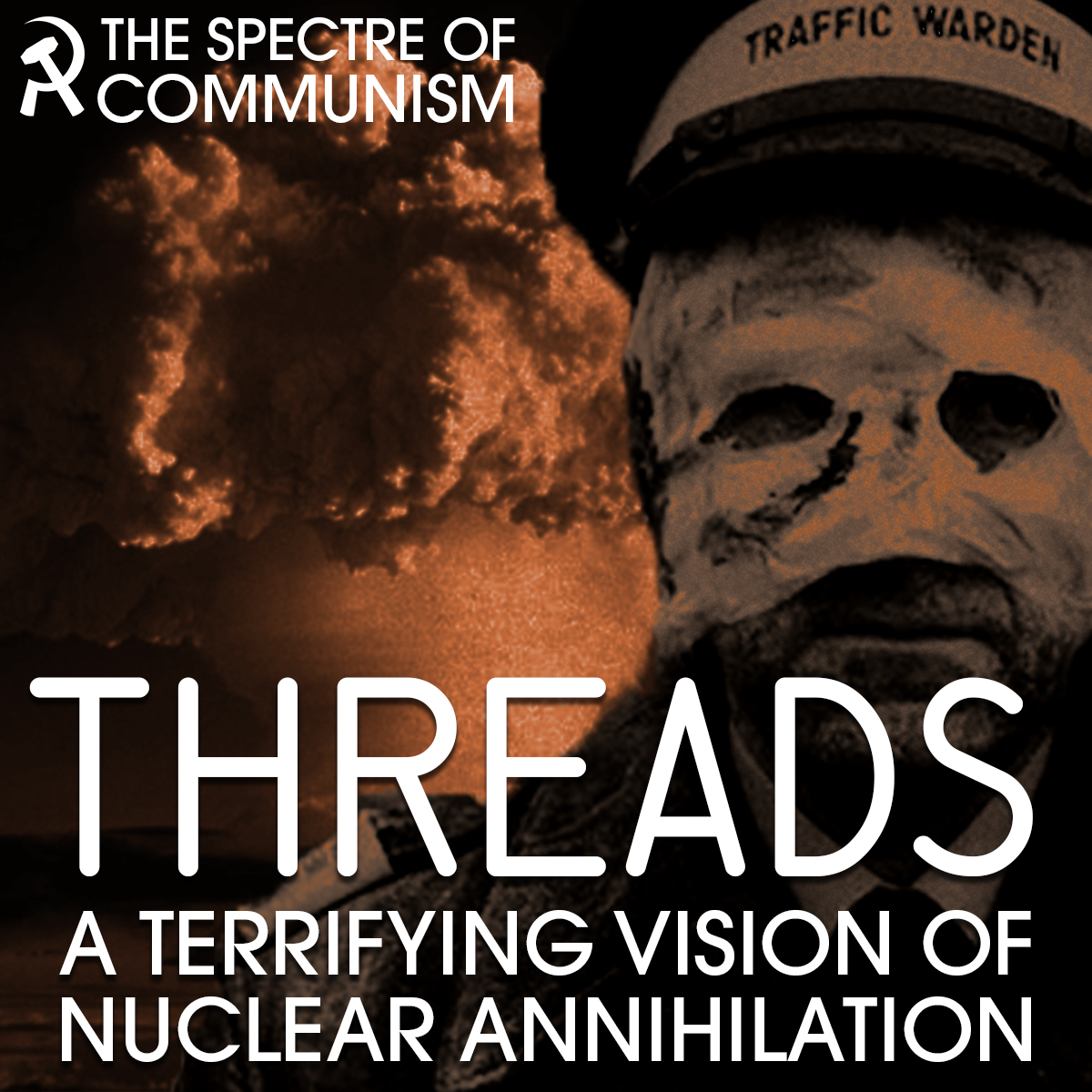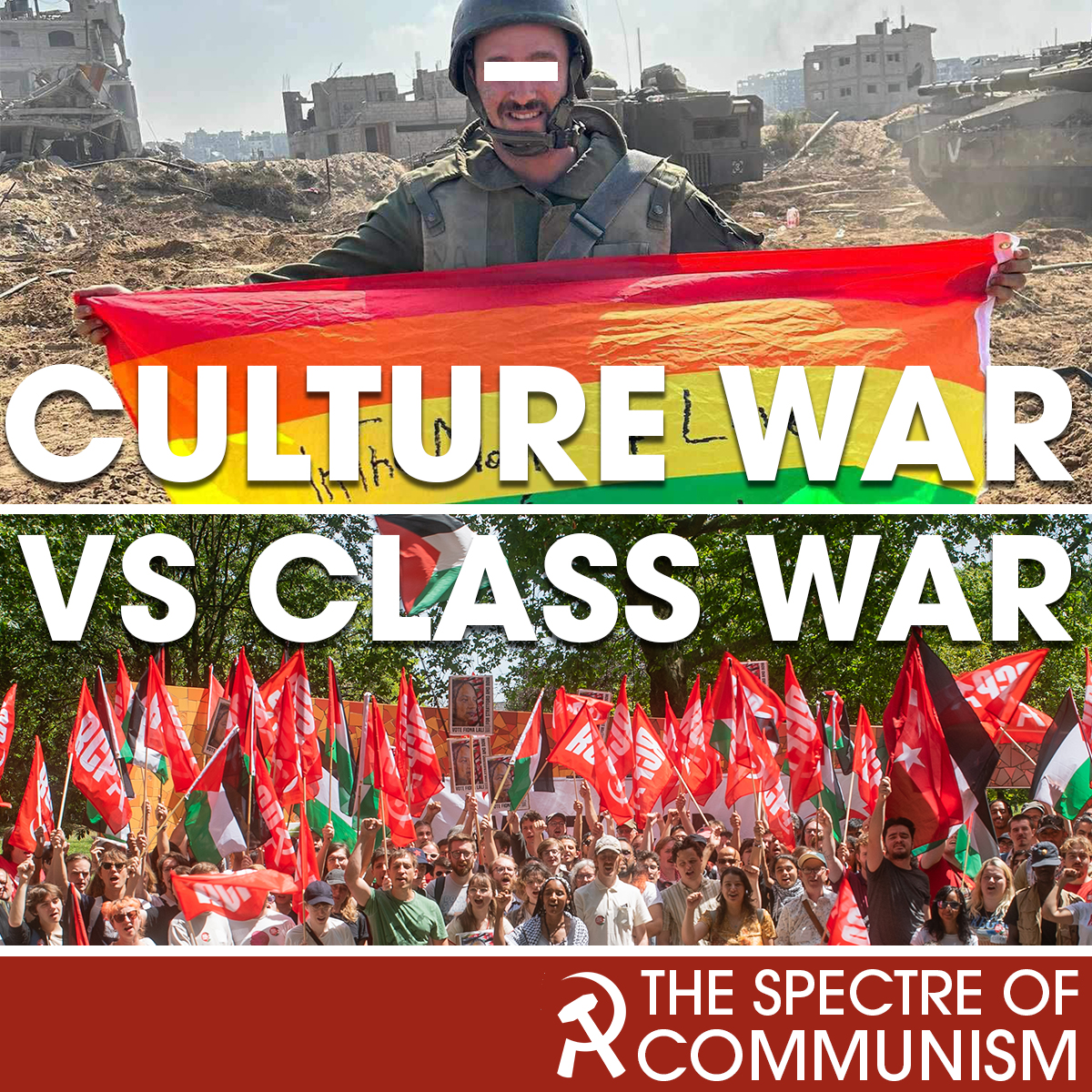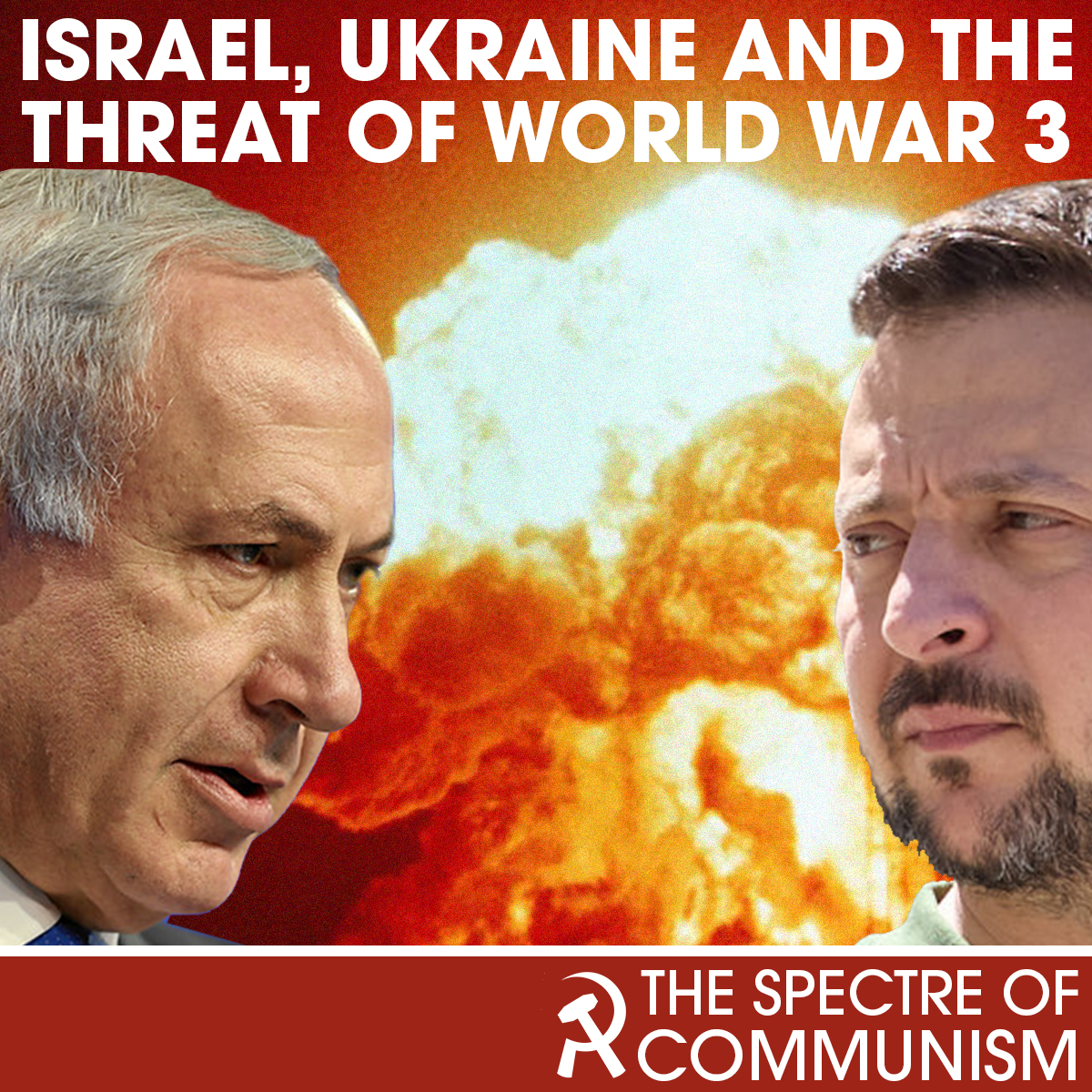This year marks 40 years since the release of the film Threads, one of the clearest and most harrowing depictions of the consequences of nuclear war ever produced. With wars and conflicts escalating around the globe, the stark message of this film has never been more relevant. The fight against the barbarity of militarism and imperialism is an existential struggle that communists have a duty to take up.
This week’s episode of Spectre of Communism Podcast welcomes Alan Woods, lead editor of marxist.com and leading member of the International Secretariat of the Revolutionary Communist International.
Alan discusses not only the powerful artistic impact of Threads, but also its vital message for us today. With Netanyahu hell-bent on escalation in the Middle East, and Zelensky intent on provoking Russia with the West’s help, the possibility of an open confrontation between nuclear powers is closer than ever. If we are to avoid the horrors that Threads so brilliantly depicts, we must wage a relentless struggle against war and imperialism, and fight to bring an end to the capitalist system that engenders them.
It is for this reason that the RCI has launched its Books not Bombs campaign, and we encourage listeners to read the opening statement of the campaign here: https://marxist.com/fight-imperialism-and-war-workers-of-the-world-unite-rci-statement.htm
People in the UK can watch Threads on BBC iPlayer here: https://www.bbc.co.uk/iplayer/episode/p02kgkkg/threads
For more on the threat of escalation in the world today, we recommend this recent article by Alan Woods on the risk of World War III: https://marxist.com/are-we-facing-world-war-iii.htm
Podcast: Play in new window | Download




